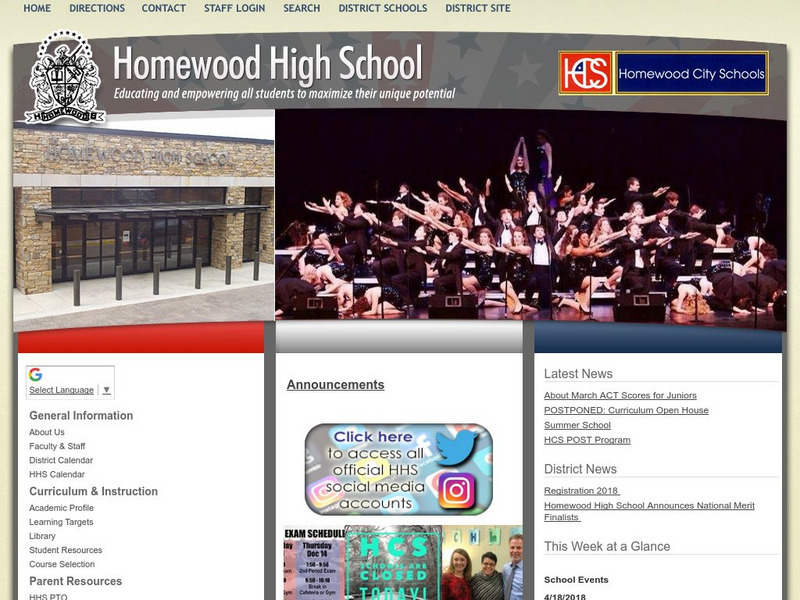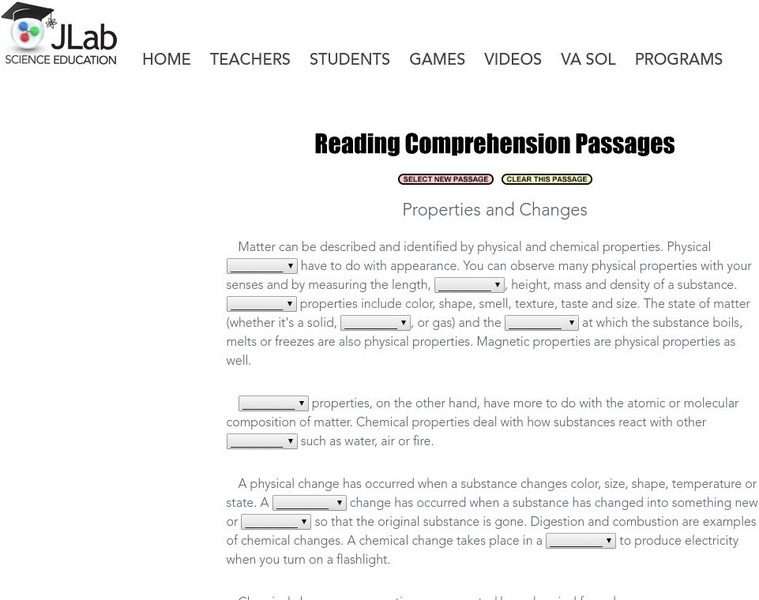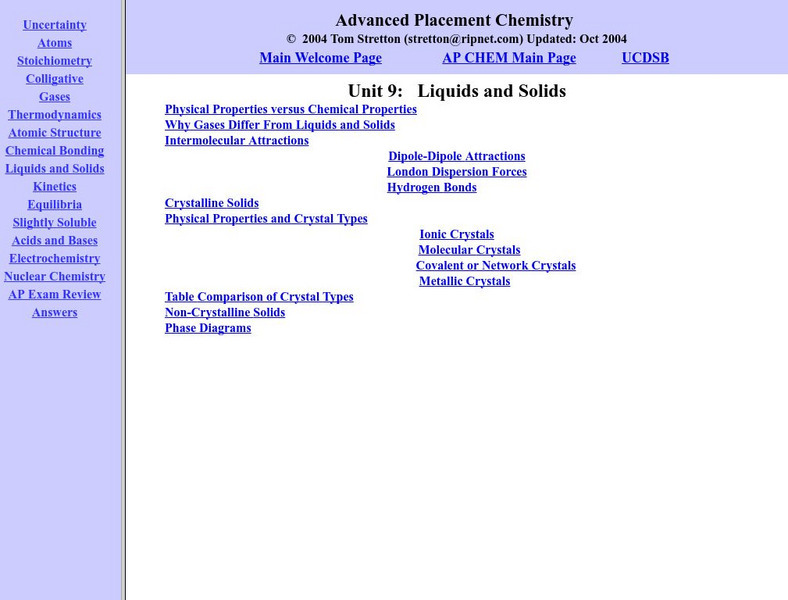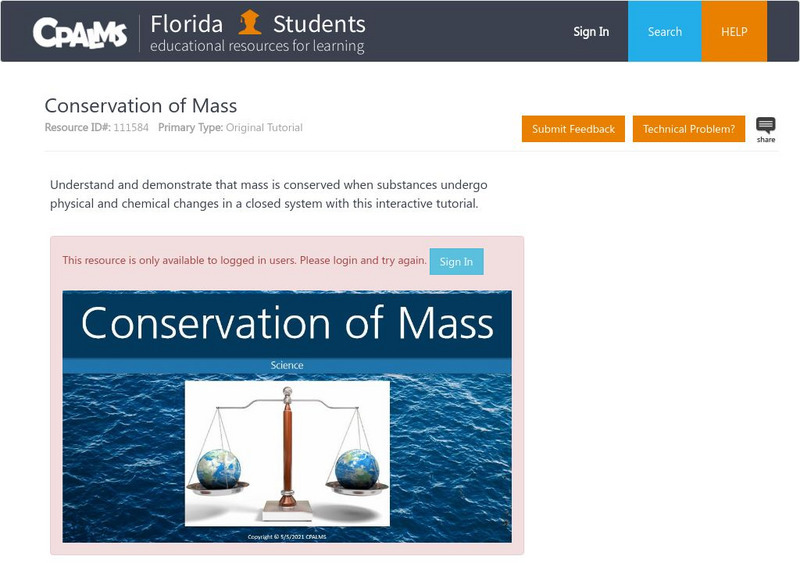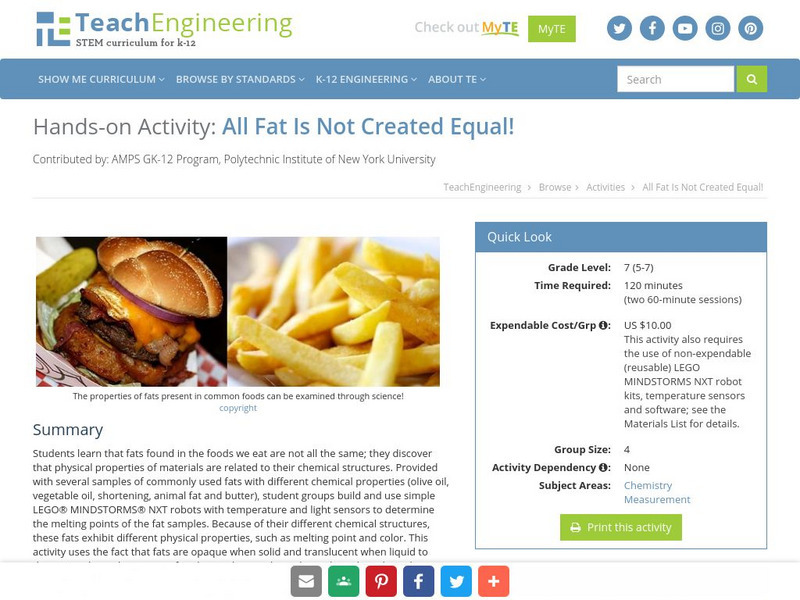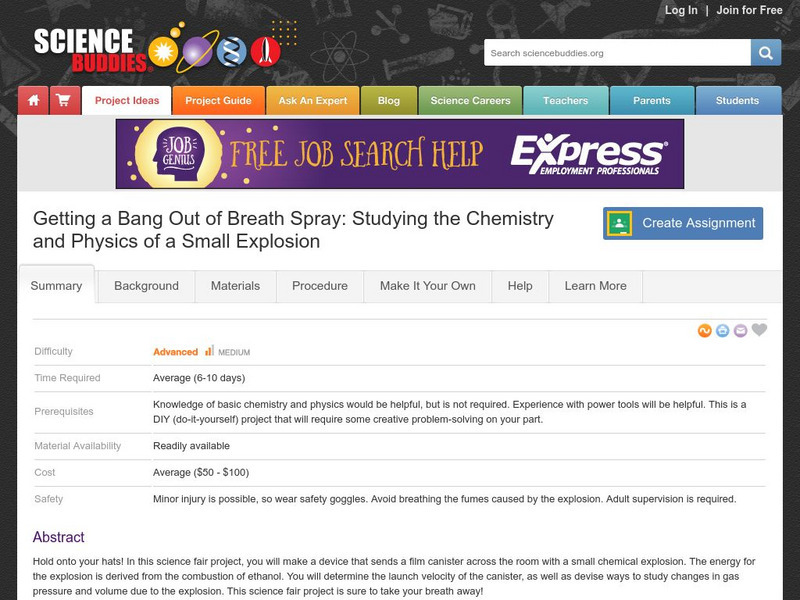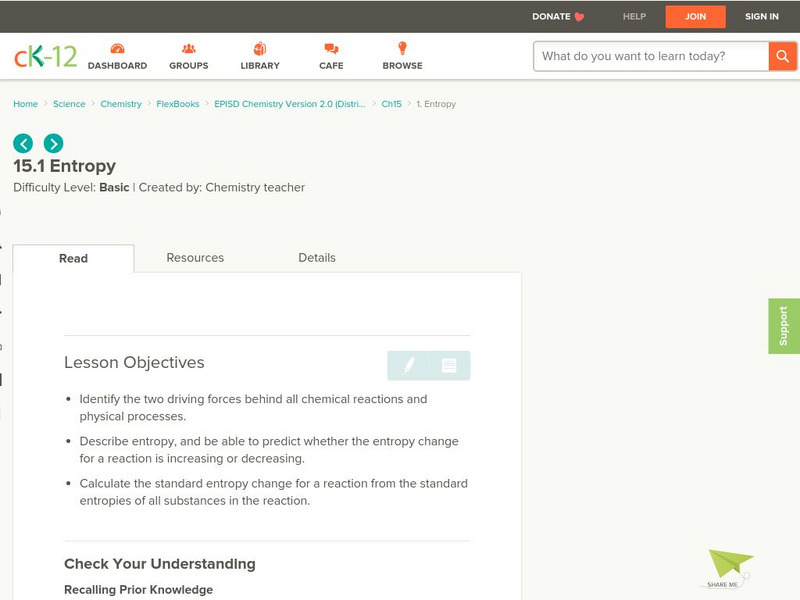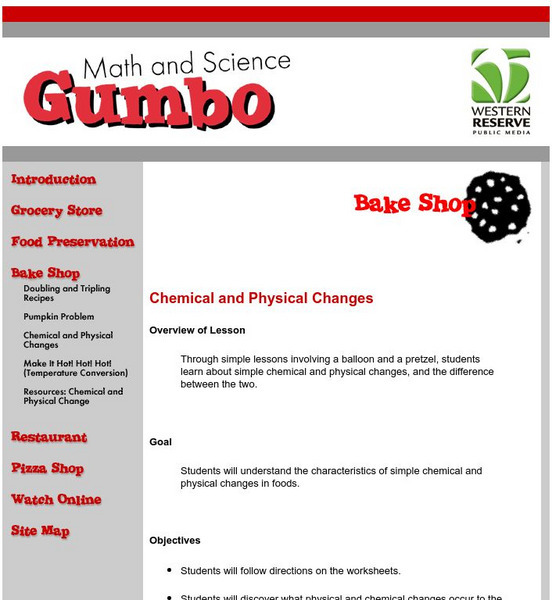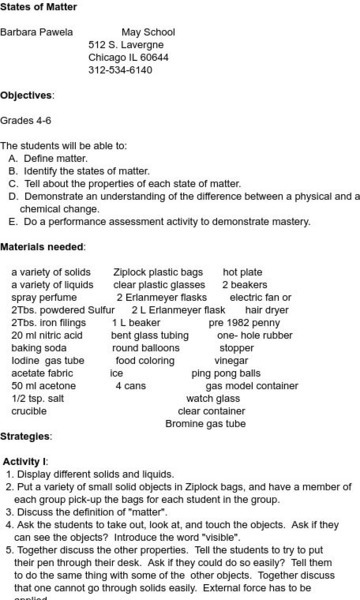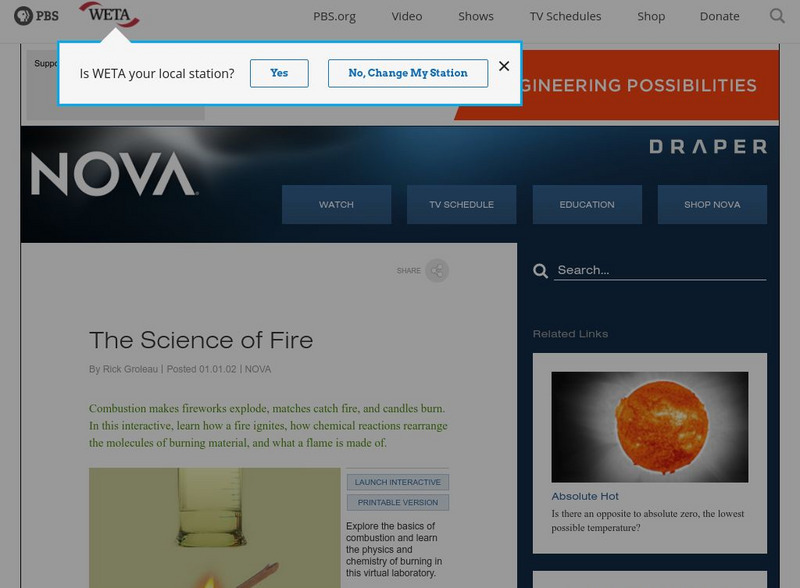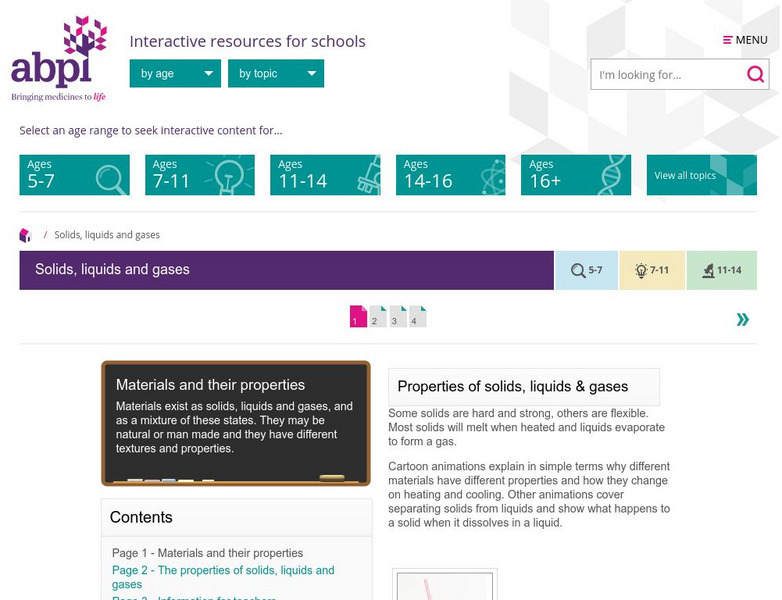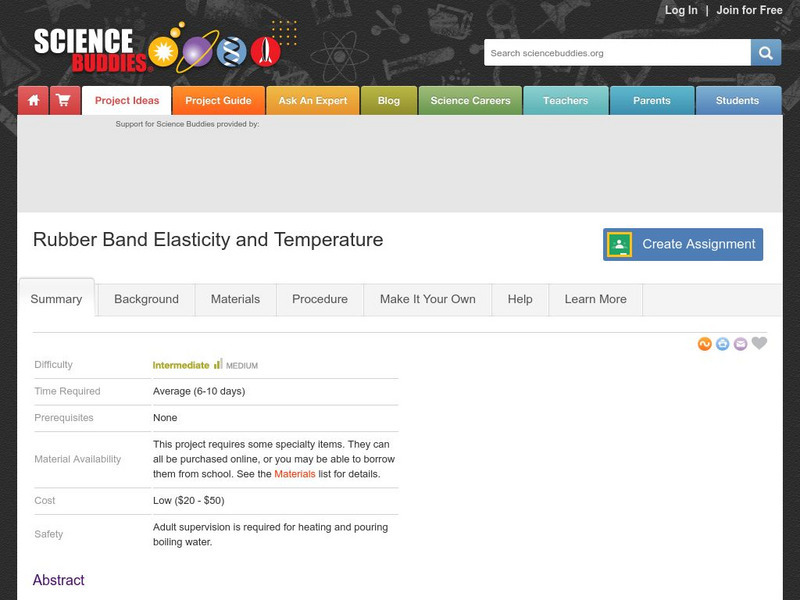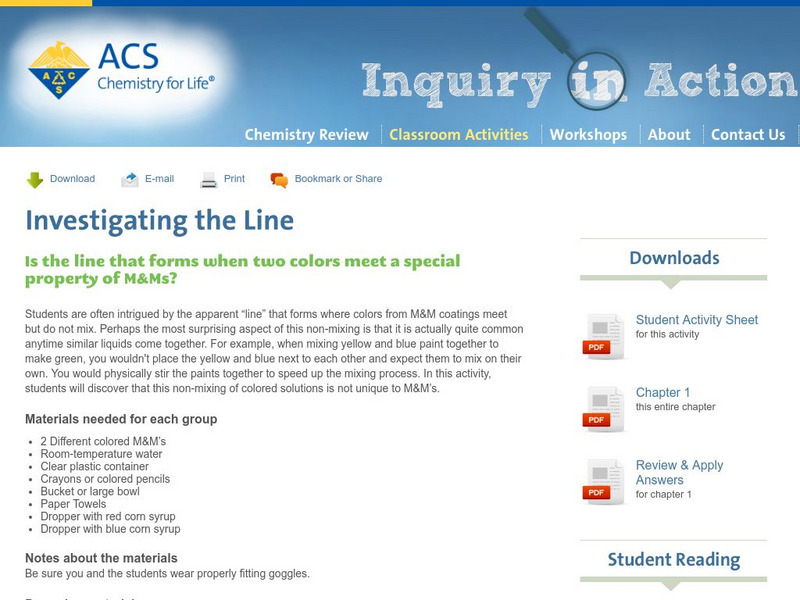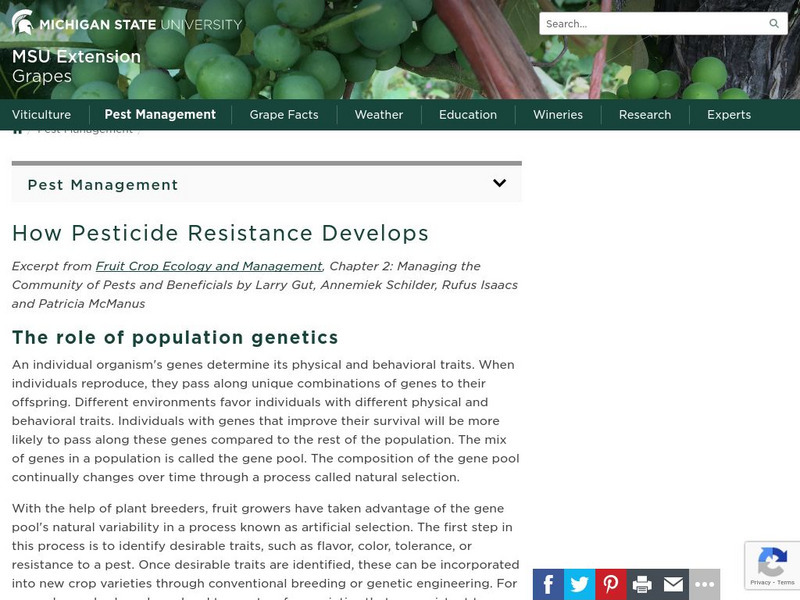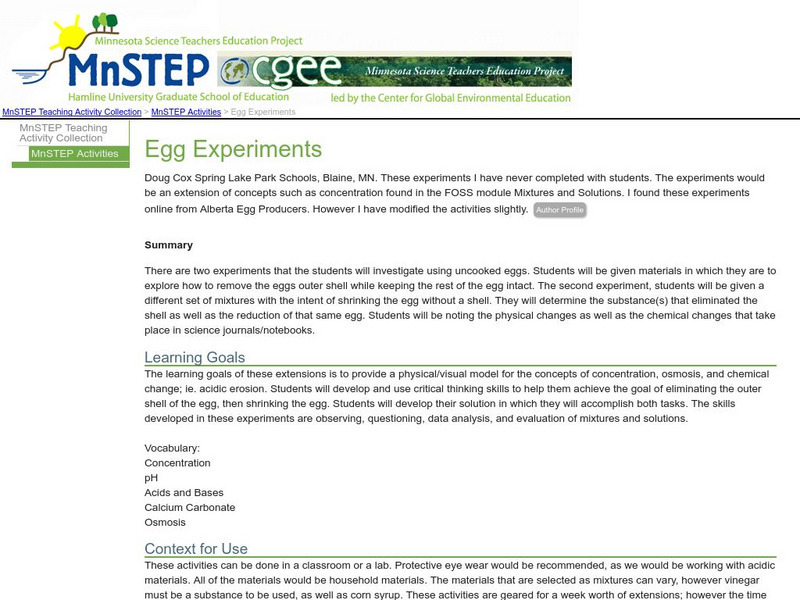Hi, what do you want to do?
Climate Literacy
Clean: Introduction to Earth's Climate
This lesson is an introduction to Earth's climate and covers key principles regarding Earth's unique climate, atmosphere, and regional and temporal climate differences. Students will gain an understanding of how the weather and climate...
Other
Homewood City Schools: Classification of Matter
This Homewood City Schools site has an outline form and contains lots of information about the classification and composition of matter. Some of the topics covered are matter and temperature, changes in state, composition of matter, and...
Thomas Jefferson National Accelerator Facility
Jefferson Lab: Reading Passage: Properties and Changes
Read and fill in the blanks of this passage properties and changes. Each blank has a dropdown menu with choices. When you finish, click CHECK MY ANSWERS. If you pick a wrong answer, the right answer will be displayed along with your choice.
Upper Canada District School Board
Tom Stretton's Advanced Placement Chemistry: Liquids and Solids
Take on this self-guided advanced level e-text, and learn about the chemical and physical structure of liquids and solids.
Annenberg Foundation
Annenberg Learner: 5 Question Survey: Chemical Change
Find out your or your students' basic knowledge of concepts like matter, molecules and open and closed systems. Afterwards you can see how others answered the questions.
Alabama Learning Exchange
Alex: What's the Matter: Concentration Game
What's the Matter? is a guided inquiry lesson on classification of matter, physical and chemical properties, and physical and chemical changes. There are two parts to this lesson: (a) concentration game for definitions and (b)...
CPALMS
Florida State University Cpalms: Florida Students: Conservation of Mass Tutorial
Learn how mass is conserved in physical and chemical changes.
TeachEngineering
Teach Engineering: All Fat Is Not Created Equally!
Students learn that fats found in the foods we eat are not all the same; they discover that physical properties of materials are related to their chemical structures. Provided with several samples of commonly used fats with different...
Science Buddies
Science Buddies: Build a 'Breath Spray Bomb' to Study Small Explosion
Hold onto your hats. In this science fair project, you will make a device that sends a film canister across the room with a small chemical explosion. The energy for the explosion is derived from the combustion of ethanol. You will...
CK-12 Foundation
Ck 12: Entropy
[Free Registration/Login may be required to access all resource tools.] After identifying the two driving forces behind all chemical reactions and physical processes, students investigate entropy, and predict whether the entropy change...
Science and Mathematics Initiative for Learning Enhancement (SMILE)
Smile: Somethin' Sweet
This site provides a lesson plan using candy making to demonstrate physical and chemical changes in matter. Includes directions to make caramel and rock candy.
Other
Western Reserve Public Media: Math & Science Gumbo: Bake Shop
In these two lessons, young scholars use pretzels and balloons to learn about reversible and non-reversible physical and chemical changes.
Science and Mathematics Initiative for Learning Enhancement (SMILE)
Smile: States of Matter
A comprehensive lesson plan site that contains a number of activities to aid in teaching about the states and properties of matter and the difference between a physical and chemical change.
PBS
Pbs: The Science of Fire
A virtual experiment bringing you to the center of combustion! Understand how fire ignites, what makes a flame, and how molecules rearrange themselves in chemical reactions. This interactive activity gives students four different...
Khan Academy
Khan Academy: Thermodynamics Article
Thermodynamics is a very important branch of both physics and chemistry. It deals with the study of energy, the conversion of energy between different forms and the ability of energy to do work. Through this article, you will begin to...
The Association of the British Pharmaceutical Industry
Abpi: Solids, Liquids, and Gases
Students learn about solids, liquids, and gases in this interactive slide show. Animated cartoon characters explain concepts having to do with properties of matter. A self-checking quiz follows the lesson.
Science Buddies
Science Buddies: Rubber Band Elasticity and Temperature
Many materials expand when heated and contract when cooled. What do you think will happen to the elasticity (stretchiness) of a rubber band when it is heated or cooled to various temperatures?
American Chemical Society
Inquiry in Action: Investigating the Line
Students will observe the non-mixing of colored solutions by using M&M's in this lab activity. Lab activity includes both student and teacher instruction sheets.
Other
The Science House: Combustion
In this experiment, students will observe that the weight of the product of combustion is greater than that of the starting material. Teacher's notes address the key concepts of this experiment.
Khan Academy
Khan Academy: What Conditions Influence Lyophilisation?
The resource from Khan Academy and the Association of American Medical Colleges provides study content for the MCAT. This resource provides practice uestions related to phase changes during lyophilisation, or the process of freeze drying.
Michigan State University
Michigan State University: How Pesticide Resistance Develops
An individual organism's genes determine its physical and behavioral traits. When individuals reproduce, they pass along unique combinations of genes to their offspring. Different environments favor individuals with different physical...
Science Education Resource Center at Carleton College
Serc: Egg Experiments
Two experiments where students investigate with uncooked eggs. In the first investigation, they explore how to remove the eggs outer shell while keeping the rest of the egg intact. In the second, students attempt to shrink the egg...
Maryland Science Center
Maryland Science Center: One Ring to Rule Them All [Pdf]
A simple experiment to create a secret message using invisible ink, in honor of J.R.R. Tolkien's birthday and the Ring in The Lord of the Rings.
The Wonder of Science
The Wonder of Science: 5 Ps1 4: Mixing Substances
Does mixing two or more substances result in new substances? This site contains work samples, phenomena, assessment templates, and videos that contain content to covers mixing substances.
Other popular searches
- Physical and Chemical Changes
- Physical Chemical Changes
- Physical/chemical Changes
- Physical & Chemical Changes






